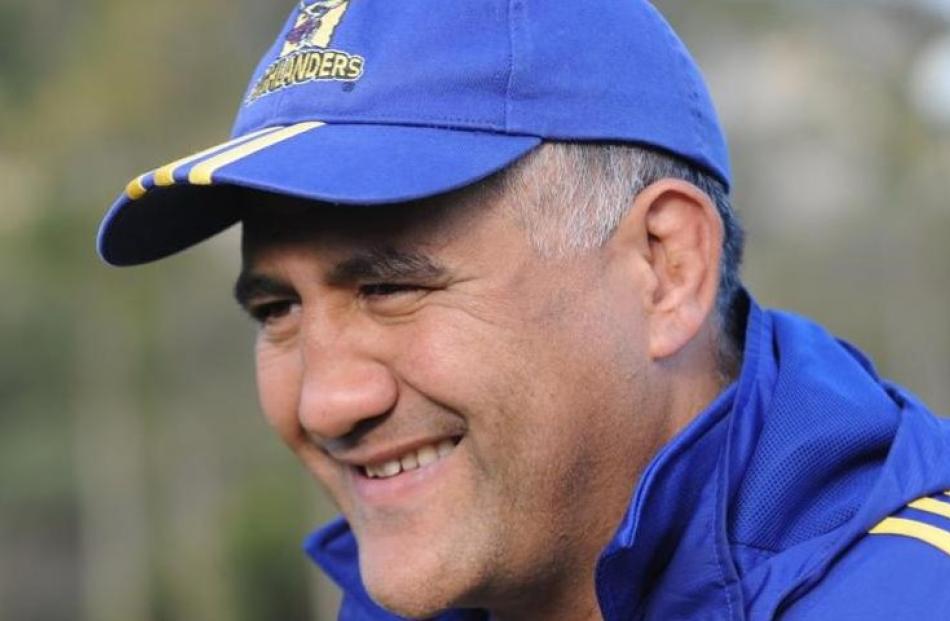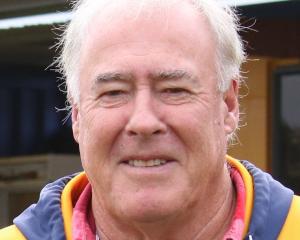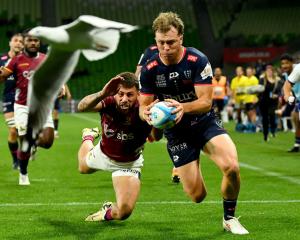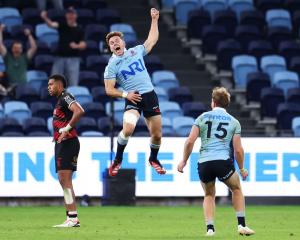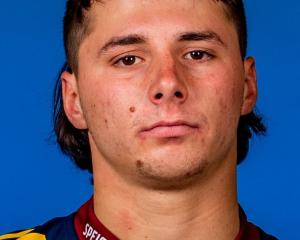The Highlanders kick off their Super 15 campaign with a derby match against the Crusaders in Dunedin tomorrow night. ODT Online rugby writer Jeff Cheshire ponders some questions about their prospects.
Can they reach the playoffs again?
The bar has been set. After the successes of 2014, the Highlanders will enter the new season with added pressure. Last year's team may have been seen as overachievers. This time around making the playoffs will be more of an expectation.
But it is not always that easy.
There are plenty of other good teams around, on paper at least. That does not always translate to good form on the park, but it is at least a starting point. In the New Zealand conference alone the Crusaders, Hurricanes and Chiefs are all exceptionally strong, while the Blues could beat anyone on their day. That the Highlanders will have to play each of these teams twice puts them on the back foot from the outset when it comes to competing against teams from other conferences for table position.
Under Jamie Joseph the Highlanders have played their best when they do not have expectations lumped on them. Both the 2011 and 2012 teams surprised many with their outstanding form early on, only to trail off as they became recognized. The 2013 team had all the names but no game at all, while last year's team lost games that really should have been won against the Force and Reds.
Last year's form will give them confidence. But carrying expectations has proven to not necessarily be a good thing over the past four years for the Highlanders.
How much of an impact will injuries have?
One thing everyone knows is inevitable, but no one knows quite when they will strike, is injuries within the team. It is something that has become more and more prevalent in Super Rugby with the ever-increasing intensity of games and length of schedule making the players more vulnerable. Last season the Highlanders coaching and training staff did an exceptional job of managing their players to limit injuries within the squad. They had a bit of luck too.
In previous years they have not been so lucky though and it showed. While the increasing expectations may have coincided with the fall off of the 2011 and 2012 teams, the more obvious reason for the fall off was the injuries that swept through the team. The same happened prior to the 2013 season, in which many key players were out of action before the season even started and a handful of others played on, although were never injury-free all year.
Last year we all saw what a difference limiting the injury toll made. Let us hope for a similarly low injury count this year.
Will the scrum hold up?
The Highlanders scrum was pretty solid up until the final three games of last season. At that point they came up against the three strongest packs in the competition and got taken to school. In fact that might be an understatement, they were absolutely demolished. There has been a high turnover in the front row stocks since then though, with five of eight front rowers arriving to the south this year. Kane Hames should hold his loosehead spot and did look strong in the scrum until the final few games where the scrum disintegrated all together. Alongside him there are two strong hookers who will not go backwards, although the tighthead side offers a potential problem. That said, Hames was a relative unknown in this part of the country when he trekked south and proved his worth, perhaps another newcomer will do the same. The locks have all shown themselves to be reasonable set-piece players at provincial level and the addition of Mark Reddish will add grunt in behind.
Set-piece is such an important facet of the game and having a good scrum is goes a long way towards creating a good platform for the backs to work with.
Will second-season syndrome be an issue?
So often players, or teams, can burst on to the scene one year and then never reach those heights again. That initial season they have a certain unknown quantity and can surprise the opposition. By the time they reach their second year, the other teams have had a chance to work them out and will make things a bit harder for them. Most obviously this could affect Malakai Fekitoa, who will now be one of the heaviest defended players in the competition. But will it really have that big an impact?
The same could be said to a lesser extent of Patrick Osborne and Richard Buckman. But they cannot gang up on all of them. Throw in Ben and Aaron Smith, as well as the likes of Waisake Naholo out wide and Nasi Manu in close, and you have a team with threats all over the park. If the opposition chooses to over-mark one player, it is going to open gaps elsewhere. Using that logic, you could hope that second-season syndrome will not affect this bunch too badly.
Will the stadium still offer the same open game plan?
The past few years have seen teams come to Forsyth Barr Stadium with the intention of playing a fast-paced game and running the ball. Certainly the conditions promote playing this type of game. Such is the pace that often by the final 20 minutes teams are beginning to tire. Often the game comes down to who is the fitter team. Given that the Highlanders are playing there regularly, they can get themselves fit in anticipation. Therefore not only do they have the advantage of playing at home, they are also forcing the opposition to beat them at playing their own game. It makes for attractive rugby too that, when you consider the calibre of the teams involved, is quite possibly the best in the world.

